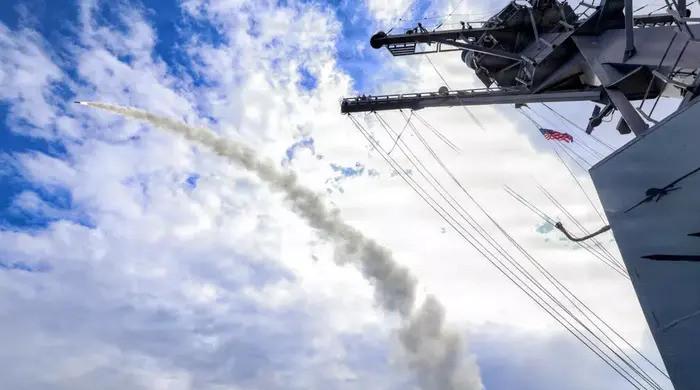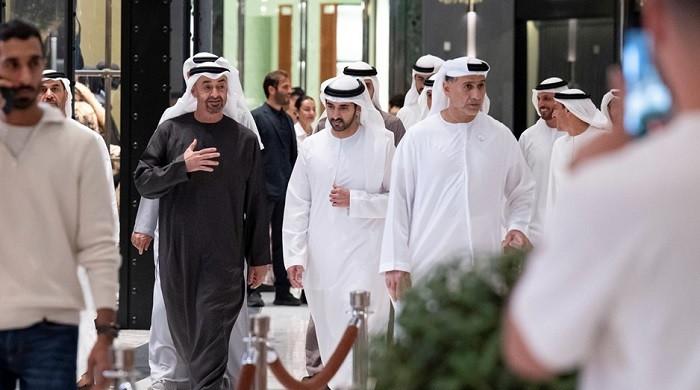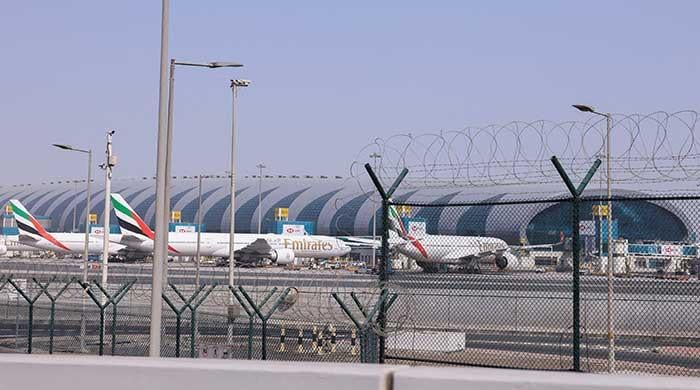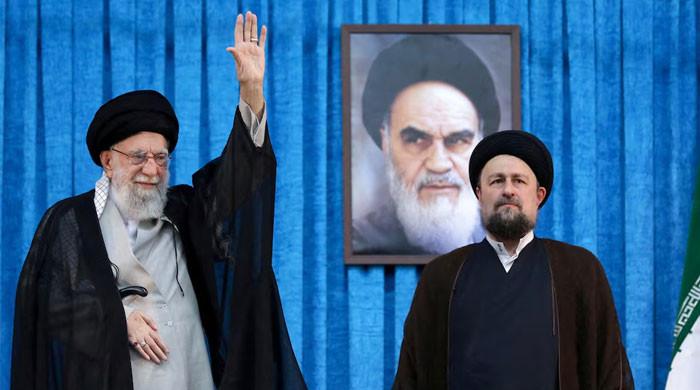Ex-FBI CI Kamran Faridi jailed for seven years for threatening to kill colleagues
Kamran Faridi facilitated the arrest of Karachi businessman Jabir Motiwala in London in August 2018
September 24, 2021
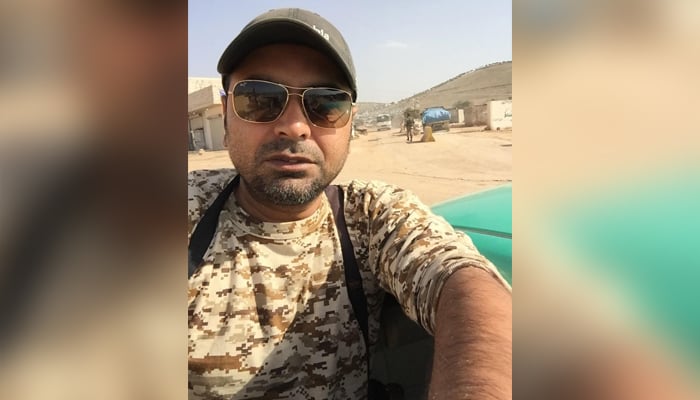
LONDON: The US Federal Bureau of Investigation’s (FBI) former confidential informant Kamran Faridi, 56, who facilitated the arrest of Karachi businessman Jabir Motiwala in London in August 2018, has been jailed and convicted in a dramatic turn of events for threatening to kill his former colleagues at the FBI, according to court papers filed in New York’s Southern District and seen by this correspondent.
Faridi has been jailed on charges of transmitting threats to three former FBI colleagues — his FBI supervisor, a FBI Joint Terrorism Task Force (JTTF) officer, and his former FBI handler, who had recently retired — in New York’s Westchester County where the JTTF headquarters is located.
His conviction is not related to Jabir Motiwala’s extradition case but what happened to both Faridi and Motiwala is a gripping tale.
Faridi was born in Karachi but migrated to the US in the early 1990s where he secured a green card after agreeing to work for the FBI in some of the organisation’s most dangerous operations. Faridi lived in Florida with his American wife Kelley for more than a decade and operated as a confidential informant for more than 20 years. He was a central character of the FBI’s entrapment operation that ran for nine years and made worldwide headlines as it featured the names of Dawood Ibrahim and Jabir Motiwala.

The downfall of Faridi — who worked for the FBI from 1995 until February 2020, and carried out several top secret missions in Pakistan — began on March 2, 2020, when he was arrested at London Heathrow Airport while trying to enter from Miami with his wife Kelley.
They had flown to London to celebrate their 21st wedding anniversary but Kamran was also intent to testify in the UK High Court against the FBI for allegedly ordering him to lie about Jabir Motiwala’s involvement in the import of Class-A drugs, extortion, money-laundering and connections to the D-company (name given by Indian media to organised crime syndicate founded and controlled by Dawood Ibrahim).
The FBI had learned of Faridi’s intentions to give a witness statement after listening to wire-tapped phone conversations between him and Motiwala’s London lawyers.
While Kelley was allowed to stay in the UK, Faridi was sent back to the US in chains the same evening with an FBI escort, even though no immigration hearing had taken place.
He landed at New York’s John F Kennedy International Airport on March 3, 2020, where he was met by more than a dozen US government officials, who accused him of being a threat to national security, strip-searched him, held him in a cell, allegedly without food or water for several hours, and then took him to court where he faced felony charges on three counts.
According to court papers signed by a FBI special agent newly assigned to the JTTF, after clashing with his FBI handlers, Faridi sent out a string of threatening text messages to them on February 17 and February 19, 2020, including death threats.
He was later accused of also tipping off several former FBI targets to the fact that they were under FBI surveillance.
Faridi’s former FBI colleagues further accused him of siding with those he had been tasked to entrap and they warned that he had “gone over to the dark side”, a claim that Faridi vigorously denied in his court defence as well as his conversation with this correspondent from his jail cell.
Nevertheless, he was locked up in an overcrowded county jail for the first 18 months of the COVID-19 pandemic. He was tried at the United States District Court, Southern District of New York, where US prosecutors told the court that prior to reaching London in March 2020, Faridi had issued multiple death threats between February 17 and February 19, 2020 to his former colleagues at JTTF – that runs almost all the FBI’s “war on terror” operations inside and outside the USA – through email and text messages.
The prosecution told the court that in February 2020 Faridi had threatened to assault and murder a federal law enforcement officer with the intent to impede, intimidate and interfere with the officer while he was engaged in the performance of his official duties. They also accused him of sending over one hundred messages during this period containing threats such as “you will pay for my family suffering and my friends getting hurt”.
Other threats included saying he was willing to die for his rights, threatening to kill FBI agents for “taking my cancer patient wife and sick parents’ medicine money”, and “ripping your heart out”.
Faridi did not dispute the evidence and confirmed that he had sent out threatening messages but countered that he had temporarily lost his temper after learning that the Internal Revenue Service (IRS) intended to conduct an audit — effectively freezing all his bank accounts — after the FBI terminated his employment and refused to reimburse him for approximately $100,000 out-of-pocket expenses.
He claimed this was punishment for his unwillingness to continue with the Motiwala operation and other allegedly dubious entrapment cases. He refused to testify under oath against Motiwala, refused to allegedly manipulate FBI evidence to strengthen the US government’s case against Motiwala and confessed that he was instrumental in “creating evidence” to link Motiwala to Dawood Ibrahim.
According to FBI testimony seen by this correspondent, Faridi told his former colleagues in writing that he would shoot them if they chased him in unmarked cars.
According to court papers, Faridi has been convicted to seven years in a federal prison.
His lawyers told the court that Faridi had grown increasingly concerned about the FBI’s methods of alleged entrapment, which according to him are based around a little known provision of the Patriot Act passed in 2006 that established “a new crime of narco-terrorism”.
Faridi’s relationship with the FBI started becoming sour when he was allegedly asked to lie about his targets’ activities in affidavits, pick innocent people out of FBI suspect line-ups, and commit other “felony offenses” simply to obtain convictions. He refused to continue.
Motiwala, who now lives in Karachi, was arrested at the Hilton London Metropole in Paddington on August 16, 2018, by the Metropolitan Police’s extradition unit on an American request in an alleged plot Faridi claims was initiated by the JTTF and facilitated by him.
The American case against Motiwala collapsed in April this year after Faridi alleged that he was forced by the FBI to entrap the Karachi businessman and that he helped the FBI create fake evidence.
After the US withdrew its case before the London High Court, Motiwala flew home as a free man. He now intends to sue the British authorities for incarcerating him at Wandsworth Prison, London, for 32 months on the basis of “trumped up” charges and sending his primary witness, Faridi, back to the US to allegedly prevent him from giving evidence of the FBI’s “illegal” deeds.
Meanwhile, Kelley Faridi has been diagnosed with cancer but has to continue working to raise money for Kamran Faridi’s appeal, as she is the family’s only breadwinner.





